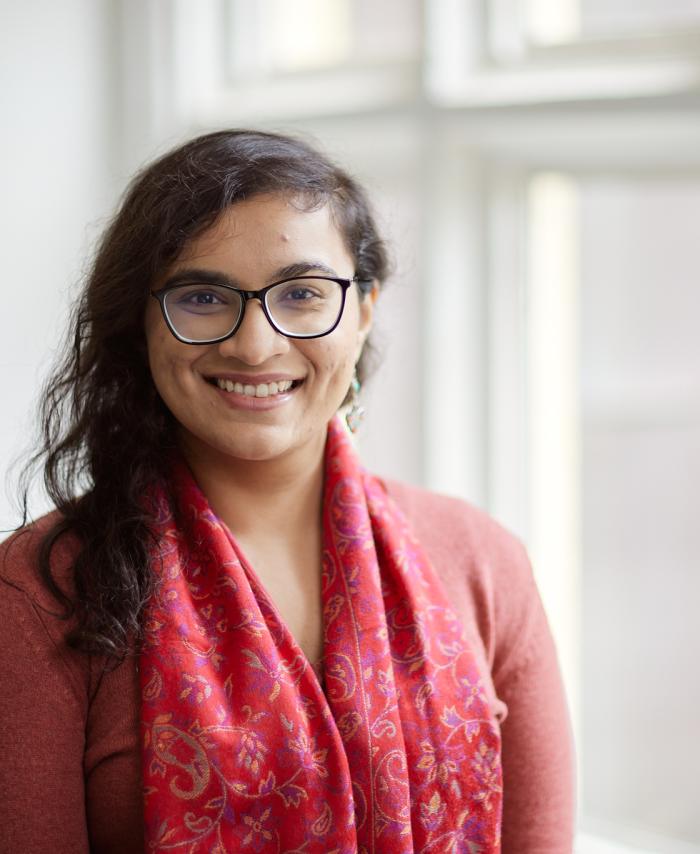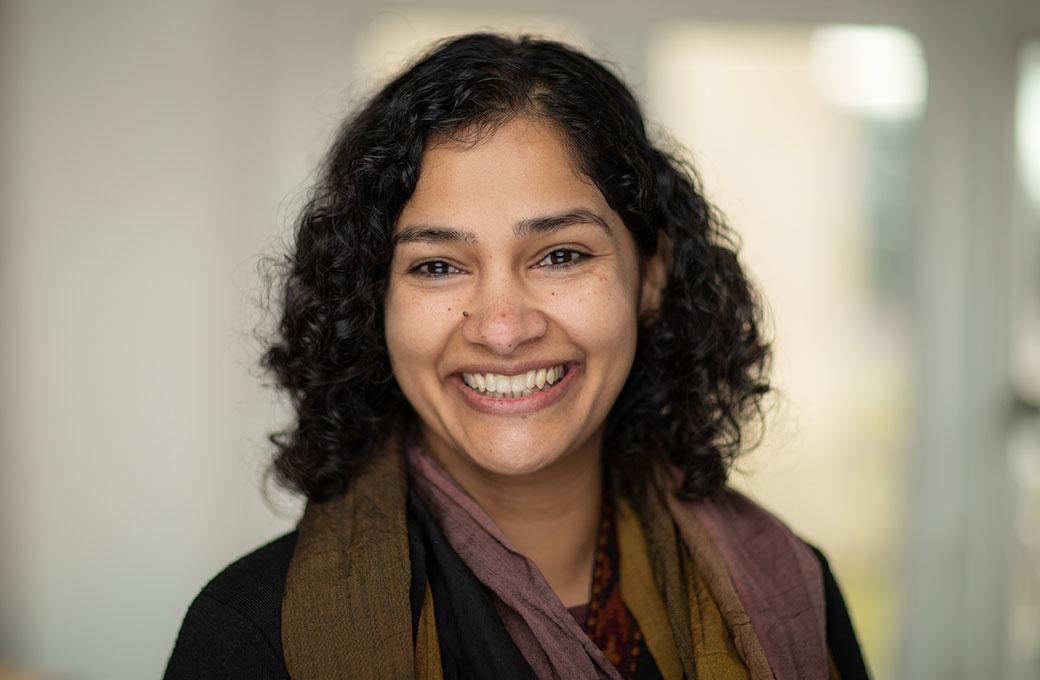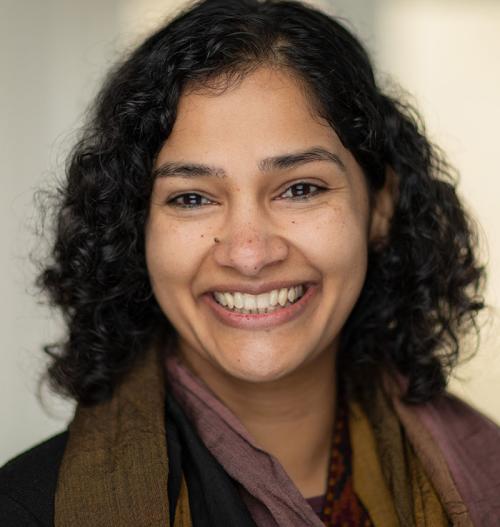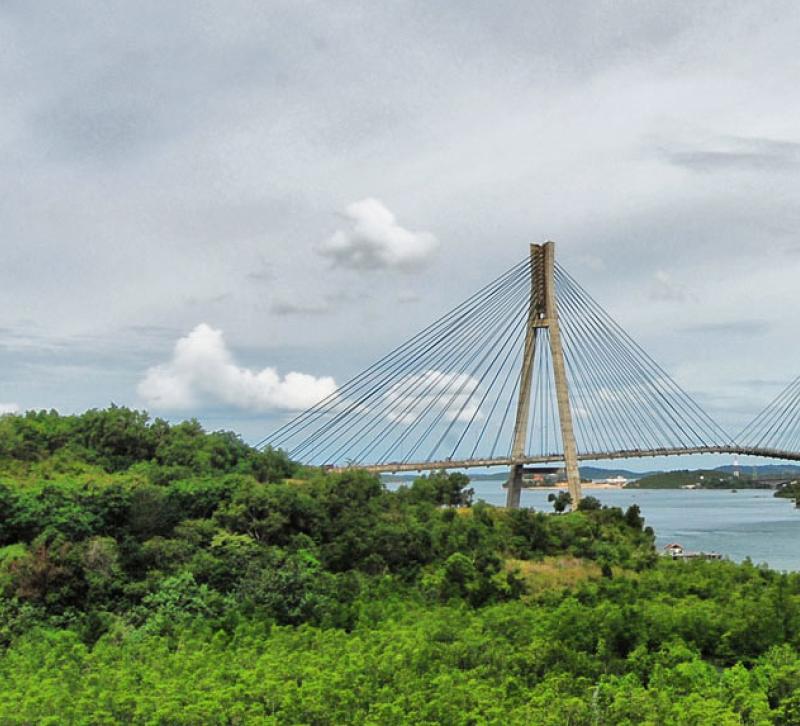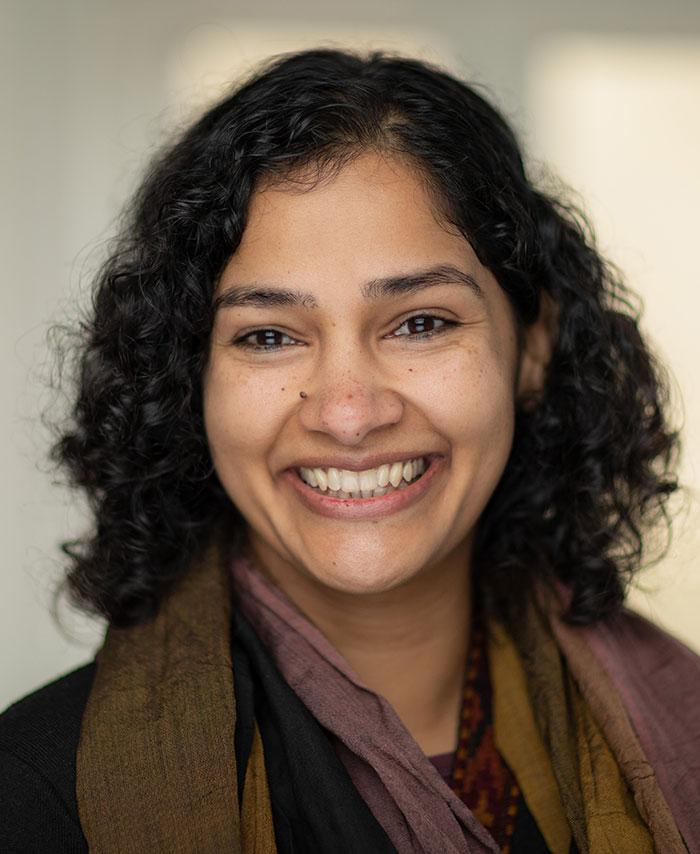
Research interests
The changing nature of the state in the global South, especially Asia; the politics of climate change, including green energy transitions, with a focus on South and Southeast Asia; the politics of economic liberalisation and business-state interactions; the global land grab; the politics of land markets; the society, politics, ecology and political economy of post-independence India, Indonesia and Singapore
Nikita Sud
Nikita Sud’s research and teaching is centred on the politics of development; the sociology and politics of climate change and green energy; and the changing nature of the state in the global South.
In recent research, Nikita delves into development theory, especially the construct of the global South (see Sud and Sanchez-Ancochea, 2022). She is also undertaking comparative research on the climate crisis, and institutional and political responses to this in South and Southeast Asia. Her work explores the transition to renewable energy, and the institutional, political and financial mechanisms that underlie this in regions that are geostrategically crucial, while being environmentally highly vulnerable. Nikita convenes an MPhil course on ‘climate questions from the global South’. She is keen to supervise critical social science research on the politics of climate change and energy transition, with a focus on Asia.
Nikita has for long studied the socially entangled life of land. In research conducted in west, east and south India, she explored ideas and theories of land. The latter were put in conversation with processes of land-making in relation to state-, politics- and market-making. Alongside publications in Geography, Environment, Development Studies, and Agrarian Studies journals, this research is encapsulated in the monograph The Making of Land and The Making of India (Oxford University Press, 2021).
Previously, she has written on the Indian state, in particular, its engagement with development as an idea and in practice; its interaction with minorities based on gender, caste and religion; and the reinvention rather than recession of this entity under economic liberalisation. This long-term research resulted in her 2012 book, Liberalization, Hindu Nationalism and the State: A Biography of Gujarat, which was widely reviewed.
Nikita is enthusiastic about interacting with publics beyond the academic. She regularly writes for national and international media. Her research has featured in The Conversation, Thomson Reuters Place, Mongabay, openDemocracy, Los Angeles Times, Al Jazeera, TRT World, Asian Scientist, The Telegraph, The Times of India, The Hindu, The Indian Express, Outlook, Tehelka, The Wire.in, Scroll.in, NDTV, The Tribune, Dainik Bhaskar, East Asia Forum, Mediapart, Bloomberg News, Bloomberg Business, BBC Radio 4, Radio France, and Radio Ö1 of the Austrian Broadcasting Corporation, among others.
She is a recipient of an Oxford University Teaching Excellence Award, the Sanjaya Lall Prize, and a Falling Walls Social Science award, and a Leverhulme Research Fellowship. She serves on the editorial boards of the Journal of Peasant Studies, Economy and Society, Journal of Contemporary Asia, and Area Development and Policy.
Nikita teaches on the MPhil and DPhil at ODID. For the MPhil in Development Studies, she contributes to the Core Course, the Foundation Course in the History and Politics of the Developing World, and to Qualitative Research Methods. She also convenes a second-year option on Climate Questions from the Global South.
She has acted as a research assessor across the university’s Social Science Division, including in the departments of Social Policy, Global and Area Studies, Geography, Politics and International Relations, Law, and Continuing Education.
Doctoral supervision
Nikita’s doctoral students past and present have worked on: agrarian and social change in India and Pakistan; the state and citizenship in South and South East Asia; land and urban transformation; the history and politics of Gujarat; the sociology, politics, history and political economy of Hindu nationalism; smart cities, special economic zones and industrial corridors with a focus on institutions, accumulation, politics and the environment; and the politics of welfare and development.
She is happy to hear from prospective doctoral students interested in any of her areas of research. She will particularly welcome conceptually innovative and theoretically informed projects on the intersections of: development, climate change and the environment, and the contemporary anti-democratic politics of authoritarianism and populism.
-
Books and monographs( ) The Making of Land and The Making of India . , New Delhi: Oxford University Press( ) Liberalization, Hindu Nationalism and the State . , New Delhi: Oxford University Press
-
Journal articles and special issues( ) Renewable transition building on resettlement society: The case of Inner Mongolia, China . Energy Research & Social Science 132 104535( ) Authority as a Spatial Hook for Renewables Capital: Frontierization, Zoning and Land Making in Asian Coal Economies . Development and Change( ) Unjust energy transition: Vignettes from the COPs, climate finance and a coal hotspot . World Development 190 106906( ) Southern Discomfort: Interrogating the Category of the Global South . Development and Change 53 (6) 1123-50( ) The actual Gujarat model: Authoritarianism, capitalism, Hindu nationalism and populism in the time of Modi . Journal of Contemporary Asia 52 (1) 102-26( ) The Unfixed State of Unfixed Land . Development and Change 51 (5) 1175-98( ) Making the political, and doing politics: unfixed land in an Amoebal Zone in India . Journal of Peasant Studies 47 (6) 1348-70( ) State, scale and networks in the liberalisation of India’s land Environment and Planning C: Government and Policy 35 (1) 76-93( ) The state in the era of India's sub-national regions: Liberalization and land in Gujarat . Geoforum 51 233-42( ) The men in the middle: A missing dimension in global land deals . Journal of Peasant Studies 41 (4) 593-612( ) Governing India's Land . World Development 60 43-56( ) Local Agency, and Structural Continuity: Views from an SHG-based Microcredit Scheme in Western India . European Journal of Development Research 25 (2) 271-87( ) Special Issue: Religion in the Making of a Region: Perspectives from Gujarat . South Asia: Journal of South Asian Studies 34(3)( ) Introduction: Religion in the Making of a Region . South Asia: Journal of South Asian Studies 34(3) 319-32( ) The Indian State in a Liberalizing Landscape . Development and Change 40 (4) 645-65( ) Cracks in the Facade: The Gujarat BJP and Elections 2009 . Economic and Political Weekly 44 (28) 15-19( ) Tracing the Links Between Hindu Nationalism and the Indian Diaspora . St Antony's International Review 3(2) 50-65( ) The Nano and Good Governance in Gujarat . Economic and Political Weekly 43 (50) 13-14( ) Secularism and the Gujarat State: 1960-2005 . Modern Asian Studies 42(6) 1249-70( ) From Land to the Tiller to Land Liberalisation: The Political Economy of Gujarat's Shifting Land Policy . Modern Asian Studies 41 (3) 603-38( ) Constructing and Contesting an Ethno-Religious Gujarati-Hindu Identity Through Development Programmes in an Indian State . Oxford Development Studies 35 (2) 131-48( ) Experiences of the SGSY in Gujarat. From Process-Oriented Theory to Deterministic Practice . Economic and Political Weekly 38 (39) 4085-7
-
Chapters( ) Land-making as state-making . In J. Borras and J.C. Franco The Oxford Handbook of Land Politics , Oxford University Press 513-30( ) Gujarat and the Contradictory Co-existence of Economic Enterprise and Political Illiberalism . In Knut A Jacobsen Routledge Handbook of Contemporary India , London: Routledge( ) The Politics of Land in Post-colonial Gujarat . In E Simpson, A Kapadia The Idea of Gujarat. History, Ethnography and Text , Hyderabad: Orient BlackSwan
-
Working papers( ) Narrowing Possibilities of Stateness: The Case of Land in Gujarat . QEH Working Paper Series QEHWPS163( ) Hindutva and Beyond: The Political Topography of Gujarat . , LSE Crisis States Research Centre

